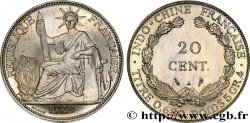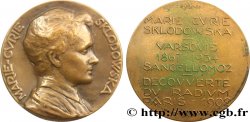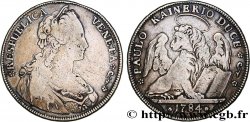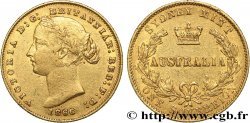Live auction - fwo_277324 - BOLIVIA - REPUBLIC Médaille Nationalisation des Compagnies Minières 1952
You must signin and be an approved bidder to bid, LOGIN TO BID. Accounts are subject to approval and the approval process takes place within 48 hours. Do not wait until the day a sale closes to register. Clicking on "BID" constitutes acceptance of the terms of use of cgb.fr private live auctions.
Bids must be placed in whole Euro amounts only. The sale will start closing at the time stated on the item description; any bids received at the site after the closing time will not be executed. Transmission times may vary and bids could be rejected if you wait until the last second. For further information check the Live auction FAQ
All winning bids are subject to a 18% buyer’s fee.
All winning bids are subject to a 18% buyer’s fee.
| Estimate : | 1 800 € |
| Price : | 1 300 € |
| Maximum bid : | 1 300 € |
| End of the sale : | 13 December 2016 18:12:36 |
| bidders : | 1 bidder |
Type : Médaille Nationalisation des Compagnies Minières
Date: 1952
Metal : gold
Millesimal fineness : 900 ‰
Diameter : 36 mm
Orientation dies : 6 h.
Weight : 38,87 g.
Edge : cannelée
Slab

PCGS : MS64
Coments on the condition:
La monnaie est sous coque PCGS MS64
Catalogue references :
Obverse
Obverse legend : REPUBLICA DE BOLIVIA *.
Obverse description : armes de la Bolivie.
Obverse translation : (République de Bolivie).
Reverse
Reverse legend : INDEPENDENCIA ECONOMICA // G.VILLARROEL / * 31-X-1952 *.
Reverse description : portrait à gauche de Gualberto Villaroel, dans le champ à droite inscription 35 / Grs. /ORO / PURO.
Reverse translation : (Indépendance économique).
Commentary
Le 21 octobre 1952, le gouvernement bolivien nationalise les principales compagnies minières du pays. A cette occasion, ont été frappées quatre médailles dont celle-ci.
On October 21, 1952, the Bolivian government nationalized the country's main mining companies. On this occasion, four medals were minted, including this one.
On October 21, 1952, the Bolivian government nationalized the country's main mining companies. On this occasion, four medals were minted, including this one.







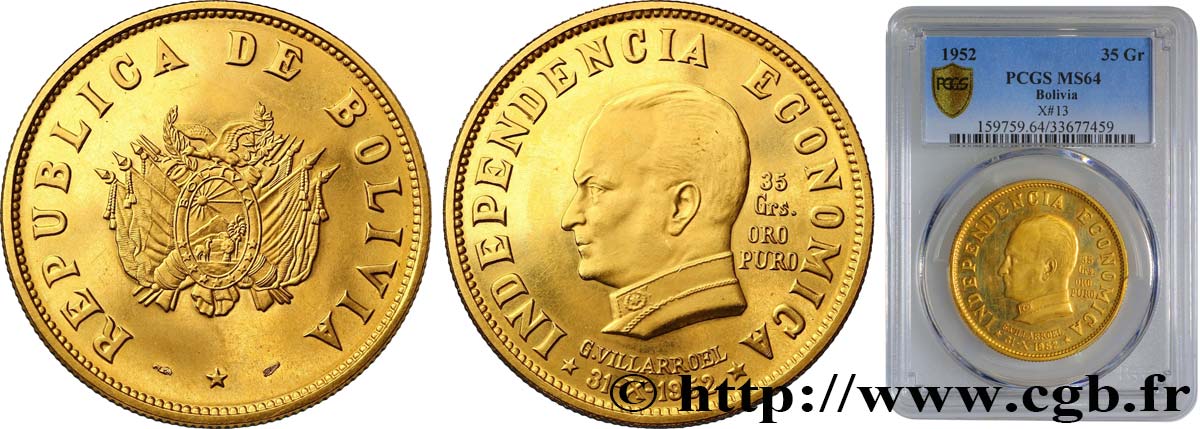
 Report a mistake
Report a mistake Print the page
Print the page Share my selection
Share my selection Ask a question
Ask a question Consign / sell
Consign / sell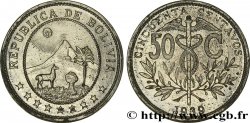
 Full data
Full data
